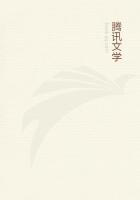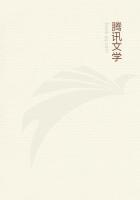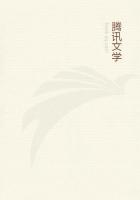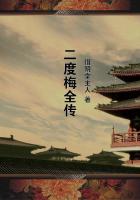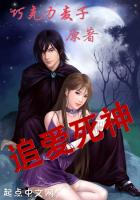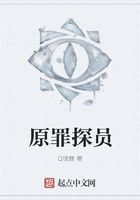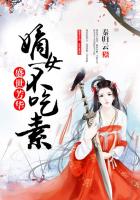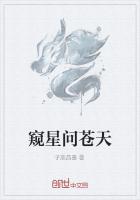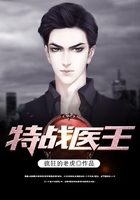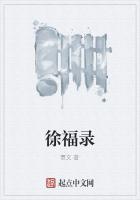In that somewhat distant year 1875, when the telegraph and the Atlantic cable were the most wonderful things in the world, a tall young professor of elocution was desperately busy in a noisy machine-shop that stood in one of the narrow streets of Boston, not far from Scollay Square. It was a very hot afternoon in June, but the young professor had forgotten the heat and the grime of the workshop. He was wholly absorbed in the ****** of a nondescript machine, a sort of crude harmonica with a clock-spring reed, a magnet, and a wire. It was a most absurd toy in appearance. It was unlike any other thing that had ever been made in any country.
The young professor had been toiling over it for three years and it had constantly baffled him, until, on this hot afternoon in June, 1875, he heard an almost inaudible sound--a faint TWANG--come from the machine itself.
For an instant he was stunned. He had been expecting just such a sound for several months, but it came so suddenly as to give him the sensation of surprise. His eyes blazed with delight, and he sprang in a passion of eagerness to an adjoining room in which stood a young mechanic who was assisting him.
"Snap that reed again, Watson," cried the apparently irrational young professor. There was one of the odd-looking machines in each room, so it appears, and the two were connected by an electric wire. Watson had snapped the reed on one of the machines and the professor had heard from the other machine exactly the same sound. It was no more than the gentle TWANG of a clock-spring; but it was the first time in the history of the world that a complete sound had been carried along a wire, reproduced perfectly at the other end, and heard by an expert in acoustics.
That twang of the clock-spring was the first tiny cry of the newborn telephone, uttered in the clanging din of a machine-shop and happily heard by a man whose ear had been trained to recognize the strange voice of the little newcomer.
There, amidst flying belts and jarring wheels, the baby telephone was born, as feeble and helpless as any other baby, and "with no language but a cry."The professor-inventor, who had thus rescued the tiny foundling of science, was a young Scottish American. His name, now known as widely as the telephone itself, was Alexander Graham Bell. He was a teacher of acoustics and a student of electricity, possibly the only man in his generation who was able to focus a knowledge of both subjects upon the problem of the telephone.
To other men that exceedingly faint sound would have been as inaudible as silence itself; but to Bell it was a thunder-clap. It was a dream come true. It was an impossible thing which had in a flash become so easy that he could scarcely believe it. Here, without the use of a battery, with no more electric current than that made by a couple of magnets, all the waves of a sound had been carried along a wire and changed back to sound at the farther end. It was absurd. It was incredible. It was something which neither wire nor electricity had been known to do before. But it was true.
No discovery has ever been less accidental.
It was the last link of a long chain of discoveries.
It was the result of a persistent and deliberate search. Already, for half a year or longer, Bell had known the correct theory of the telephone; but he had not realized that the feeble undulatory current generated by a magnet was strong enough for the transmission of speech.
He had been taught to undervalue the incredible efficiency of electricity.
Not only was Bell himself a teacher of the laws of speech, so highly skilled that he was an instructor in Boston University. His father, also, his two brothers, his uncle, and his grandfather had taught the laws of speech in the universities of Edinburgh, Dublin, and London.
For three generations the Bells had been professors of the science of talking. They had even helped to create that science by several inven-tions. The first of them, Alexander Bell, had invented a system for the correction of stammering and similar defects of speech. The second, Alexander Melville Bell, was the dean of British elocutionists, a man of creative brain and a most impressive facility of rhetoric. He was the author of a dozen text-books on the art of speaking correctly, and also of a most ingenious sign-language which he called "Visible Speech."Every letter in the alphabet of this language represented a certain action of the lips and tongue; so that a new method was provided for those who wished to learn foreign languages or to speak their own language more correctly.
And the third of these speech-improving Bells, the inventor of the telephone, inherited the peculiar genius of his fathers, both inventive and rhetorical, to such a degree that as a boy he had constructed an artificial skull, from gutta-percha and India rubber, which, when enlivened by a blast of air from a hand-bellows, would actually pronounce several words in an almost human manner.
The third Bell, the only one of this remarkable family who concerns us at this time, was a young man, barely twenty-eight, at the time when his ear caught the first cry of the telephone. But he was already a man of some note on his own account.
He had been educated in Edinburgh, the city of his birth, and in London; and had in one way and another picked up a smattering of anatomy, music, electricity, and telegraphy.
Until he was sixteen years of age, he had read nothing but novels and poetry and romantic tales of Scottish heroes. Then he left home to become a teacher of elocution in various British schools, and by the time he was of age he had made several slight discoveries as to the nature of vowel-sounds. Shortly afterwards, he met in London two distinguished men, Alexander J.
Ellis and Sir Charles Wheatstone, who did far more than they ever knew to forward Bell in the direction of the telephone.

